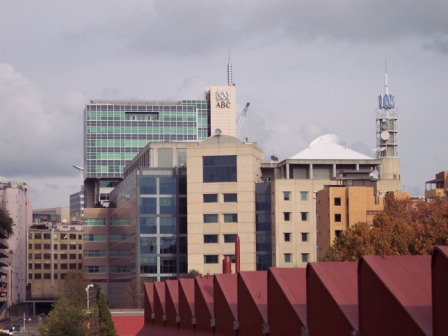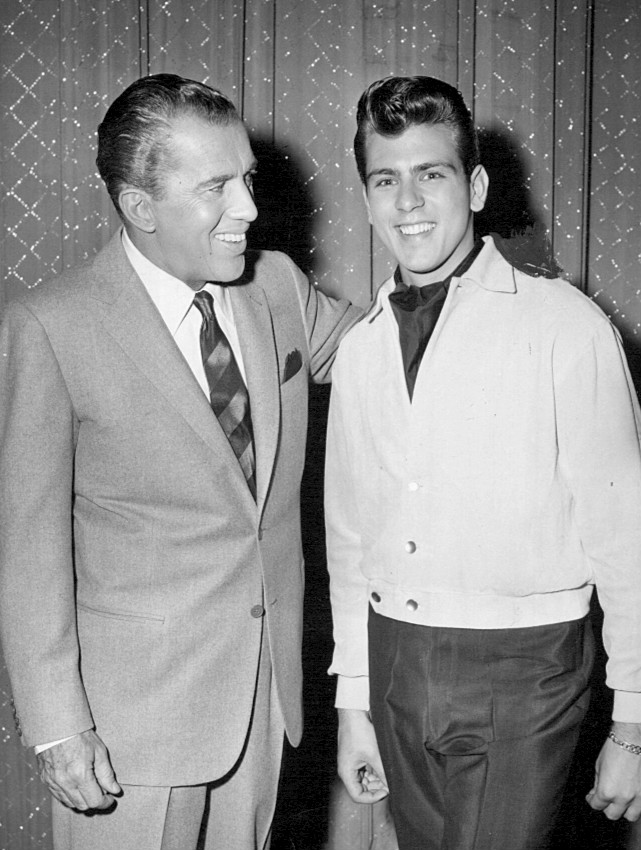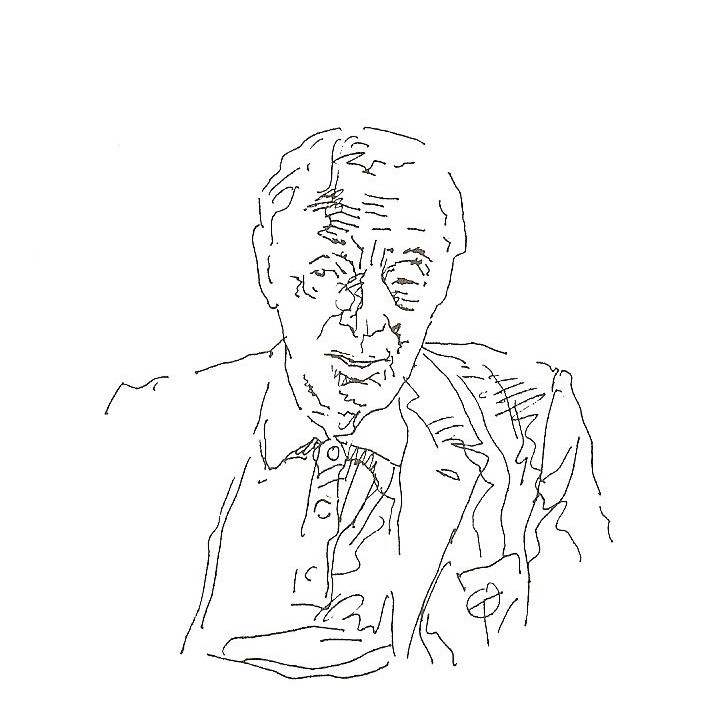|
The Critics (TV Series)
''The Critics'' was an Australian television series which aired on ABC. Two versions were produced, one for Sydney and another for Melbourne. Debuting 1959, the Melbourne version ran to 1960, while the Sydney version ran to circa 1962. Format A panel of three members would review or discuss three works, often a book, a film and an event. For example, in the 10 March 1960 Melbourne edition, the book was ''The Heroes'' by Ronald McKie, the film was ''The Wreck of the Mary Deare'' and the event was ''The Tommy Steele Show''. In a 1959 Sydney edition (shown in Melbourne on 1 November 1959), the panel discussed Yugoslav State Company dancers and musicians, the novel ''Henderson the Rain King'' by Saul Bellow, and the Sydney appearance by U.S. rock singer Fabian. Episode status It is not known how many episodes are still extant, given the erratic survival rate of 1950s/early 1960s Australian television series. Telerecordings of two or three episodes are held by National Archives of Au ... [...More Info...] [...Related Items...] OR: [Wikipedia] [Google] [Baidu] |
National Archives Of Australia
The National Archives of Australia (NAA), formerly known as the Commonwealth Archives Office and Australian Archives, is an Australian Government agency that serves as the national archives of the nation. It collects, preserves and encourages access to important Commonwealth government records. Established under and governed by the ''Archives Act 1983'', its main roles are "to collect and preserve Australia's most valuable government records and encourage their use by the public, and to promote good information management by Commonwealth government agencies, especially in meeting the challenges of the digital age". The NAA also develops exhibitions, publishes books and guides to the collection, and delivers educational programs. History After World War I the Commonwealth National Library (later National Library of Australia) was responsible for collecting Australian Government records. The library appointed its first archives officer in 1944. In March 1961 the Commonwealth A ... [...More Info...] [...Related Items...] OR: [Wikipedia] [Google] [Baidu] |
Black-and-white Australian Television Shows
Black-and-white (B&W or B/W) images combine black and white in a continuous spectrum, producing a range of shades of grey. Media The history of various visual media began with black and white, and as technology improved, altered to color. However, there are exceptions to this rule, including black-and-white fine art photography, as well as many film motion pictures and art film(s). Photography Contemporary use Since the late 1960s, few mainstream films have been shot in black-and-white. The reasons are frequently commercial, as it is difficult to sell a film for television broadcasting if the film is not in color. 1961 was the last year in which the majority of Hollywood films were released in black and white. Computing In computing terminology, ''black-and-white'' is sometimes used to refer to a binary image consisting solely of pure black pixels and pure white ones; what would normally be called a black-and-white image, that is, an image containing shades of g ... [...More Info...] [...Related Items...] OR: [Wikipedia] [Google] [Baidu] |
Australian Broadcasting Corporation Original Programming
Australian(s) may refer to: Australia * Australia, a country * Australians, citizens of the Commonwealth of Australia ** European Australians ** Anglo-Celtic Australians, Australians descended principally from British colonists ** Aboriginal Australians, indigenous peoples of Australia as identified and defined within Australian law * Australia (continent) The continent of Australia, sometimes known in technical contexts by the names Sahul (), Australia-New Guinea, Australinea, Meganesia, or Papualand to distinguish it from the country of Australia, is located within the Southern and East ... ** Indigenous Australians * Australian English, the dialect of the English language spoken in Australia * Australian Aboriginal languages * ''The Australian'', a newspaper * Australiana, things of Australian origins Other uses * Australian (horse), a racehorse * Australian, British Columbia, an unincorporated community in Canada See also * The Australian (other) * ... [...More Info...] [...Related Items...] OR: [Wikipedia] [Google] [Baidu] |
Australian Live Television Series
Australian(s) may refer to: Australia * Australia, a country * Australians, citizens of the Commonwealth of Australia ** European Australians ** Anglo-Celtic Australians, Australians descended principally from British colonists ** Aboriginal Australians, indigenous peoples of Australia as identified and defined within Australian law * Australia (continent) ** Indigenous Australians * Australian English, the dialect of the English language spoken in Australia * Australian Aboriginal languages * ''The Australian'', a newspaper * Australiana, things of Australian origins Other uses * Australian (horse), a racehorse * Australian, British Columbia, an unincorporated community in Canada See also * The Australian (other) * Australia (other) * * * Austrian (other) {{disambiguation Language and nationality disambiguation pages ... [...More Info...] [...Related Items...] OR: [Wikipedia] [Google] [Baidu] |
1962 Australian Television Series Endings
Year 196 ( CXCVI) was a leap year starting on Thursday (link will display the full calendar) of the Julian calendar. At the time, it was known as the Year of the Consulship of Dexter and Messalla (or, less frequently, year 949 ''Ab urbe condita''). The denomination 196 for this year has been used since the early medieval period, when the Anno Domini calendar era became the prevalent method in Europe for naming years. Events By place Roman Empire * Emperor Septimius Severus attempts to assassinate Clodius Albinus but fails, causing Albinus to retaliate militarily. * Emperor Septimius Severus captures and sacks Byzantium; the city is rebuilt and regains its previous prosperity. * In order to assure the support of the Roman legion in Germany on his march to Rome, Clodius Albinus is declared Augustus by his army while crossing Gaul. * Hadrian's wall in Britain is partially destroyed. China * First year of the '' Jian'an era of the Chinese Han Dynasty. * Emperor Xian of ... [...More Info...] [...Related Items...] OR: [Wikipedia] [Google] [Baidu] |
1959 Australian Television Series Debuts
Events January * January 1 - Cuba: Fulgencio Batista flees Havana when the forces of Fidel Castro advance. * January 2 - Lunar probe Luna 1 was the first man-made object to attain escape velocity from Earth. It reached the vicinity of Earth's Moon, and was also the first spacecraft to be placed in heliocentric orbit. * January 3 ** The three southernmost atolls of the Maldive archipelago (Addu Atoll, Huvadhu Atoll and Fuvahmulah island) declare independence. ** Alaska is admitted as the 49th U.S. state. * January 4 ** In Cuba, rebel troops led by Che Guevara and Camilo Cienfuegos enter the city of Havana. ** Léopoldville riots: At least 49 people are killed during clashes between the police and participants of a meeting of the ABAKO Party in Léopoldville in the Belgian Congo. * January 6 ** Fidel Castro arrives in Havana. ** The International Maritime Organization is inaugurated. * January 7 – The United States recognizes the new Cuban government of Fidel Castro. * ... [...More Info...] [...Related Items...] OR: [Wikipedia] [Google] [Baidu] |
Any Questions (Australian TV Series)
''Any Questions'' was an Australian television series which aired on the Australian Broadcasting Corporation, ABC from 1958 to 1963. The series presented a panel, who would discuss various topics in each episode. ABC produced several discussion series during the 1950s and 1960s. Originally aired on Thursdays, it later moved to Wednesdays. Some of the editions were made in Sydney, while others were made in Melbourne. Overview The program may have had its origins in a 1950s half-hour ABC radio program of the same name that was broadcast on Tuesday nights. The "Chairman" overseeing the panel varied: In Melbourne it included Frank Eyre, in Sydney it included Nicholas Larkins and Frank Legg. TV listings from the run of the series suggest the Sydney edition was Telerecording, telerecorded for Melbourne broadcast, although video-tape had become available in Australia by 1959 ABC did not acquire video-tape equipment until the 1960s, likely due to the expense of early video-tape. It is no ... [...More Info...] [...Related Items...] OR: [Wikipedia] [Google] [Baidu] |
Telerecording
Kinescope , shortened to kine , also known as telerecording in Britain, is a recording of a television program on motion picture film, directly through a lens focused on the screen of a video monitor. The process was pioneered during the 1940s for the preservation, re-broadcasting and sale of television programmes before the introduction of quadruplex videotape, which from 1956 eventually superseded the use of kinescopes for all of these purposes. Kinescopes were the only practical way to preserve live television broadcasts prior to videotape. Typically, the term Kinescope can refer to the process itself, the equipment used for the procedure (a movie camera mounted in front of a video monitor, and synchronized to the monitor's scanning rate), or a film made using the process. The term originally referred to the cathode ray tube used in television receivers, as named by inventor Vladimir K. Zworykin in 1929. Hence, the recordings were known in full as kinescope films or kinesc ... [...More Info...] [...Related Items...] OR: [Wikipedia] [Google] [Baidu] |
ABC Television (Australian TV Network)
ABC Television is the general name for the national television services of the Australian Broadcasting Corporation (ABC). Until an organisational restructure in 2017/2018, ABC Television was also the name of a division of the ABC. The name was also used to refer to the first and for many years the only national ABC channel, before it was renamed ABC1 and then again to ABC TV. The Australian public broadcaster's television service was launched in November 1956 from its first television station in Australia, ABN Sydney. This was the second one in the country, with the commercial channel TCN having launched two months earlier. An ABC television network covering every state and territory was completed by 1971, and in 2000 the television operations joined the ABC radio and online divisions at the Corporation's Ultimo headquarters in Sydney in 2000. The ABC provides five non-commercial channels within Australia, headed by its flagship ABC TV channel, as well as ABC Australia, ... [...More Info...] [...Related Items...] OR: [Wikipedia] [Google] [Baidu] |
Fabian (entertainer)
Fabian Forte (born Fabiano Anthony Forte, February 6, 1943), professionally known as Fabian, is an American singer and actor. Forte rose to national prominence after performing several times on ''American Bandstand''. He became a teen idol of the late 1950s and early 1960s. Eleven of his songs reached the ''Billboard'' Hot 100. Early life Fabian Forte is the son of Josephine and Dominic Forte; his father was a Philadelphia police officer. He is the eldest of three brothers and grew up in the South Philadelphia's Lower Moyamensing neighborhood. Discovery Forte was discovered in 1957 by Bob Marcucci and Peter DeAngelis, owners of Chancellor Records. At the time, record producers were looking to the South Philadelphia neighborhoods in search of teenage talents with good looks. Marcucci was a friend of Fabian's next-door neighbor. One day, Fabian's father had a heart attack, and, while he was being taken away in an ambulance, Marcucci spotted Fabian. Fabian later recalled, "H ... [...More Info...] [...Related Items...] OR: [Wikipedia] [Google] [Baidu] |
Saul Bellow
Saul Bellow (born Solomon Bellows; 10 July 1915 – 5 April 2005) was a Canadian-born American writer. For his literary work, Bellow was awarded the Pulitzer Prize, the Nobel Prize for Literature, and the National Medal of Arts. He is the only writer to win the National Book Award for Fiction three times, and he received the National Book Foundation's lifetime Medal for Distinguished Contribution to American Letters in 1990."Distinguished Contribution to American Letters" National Book Foundation. Retrieved 12 March 2012. In the words of the Swedish , his writing exhibited e mixture of r ... |





